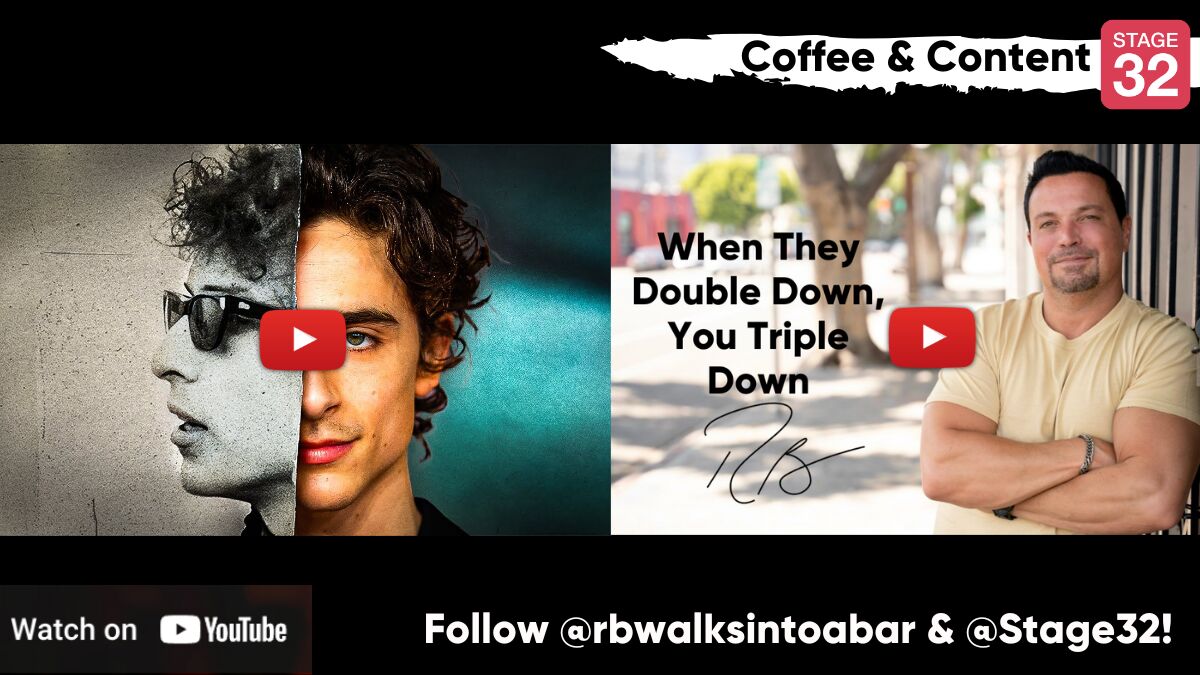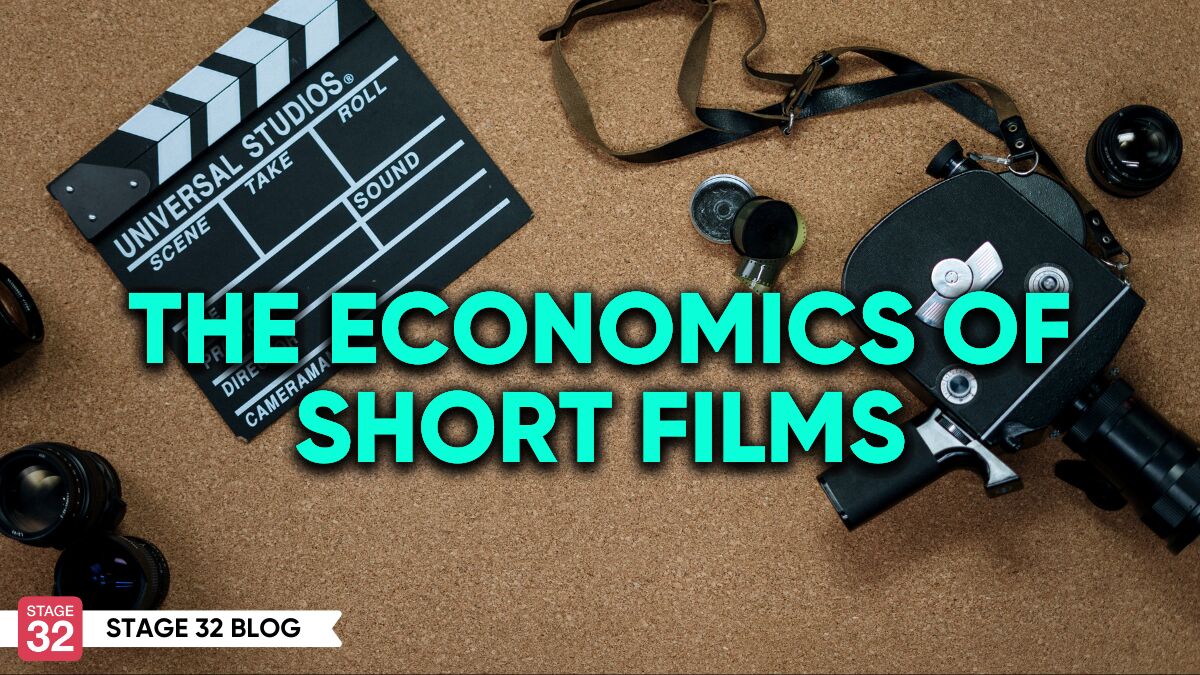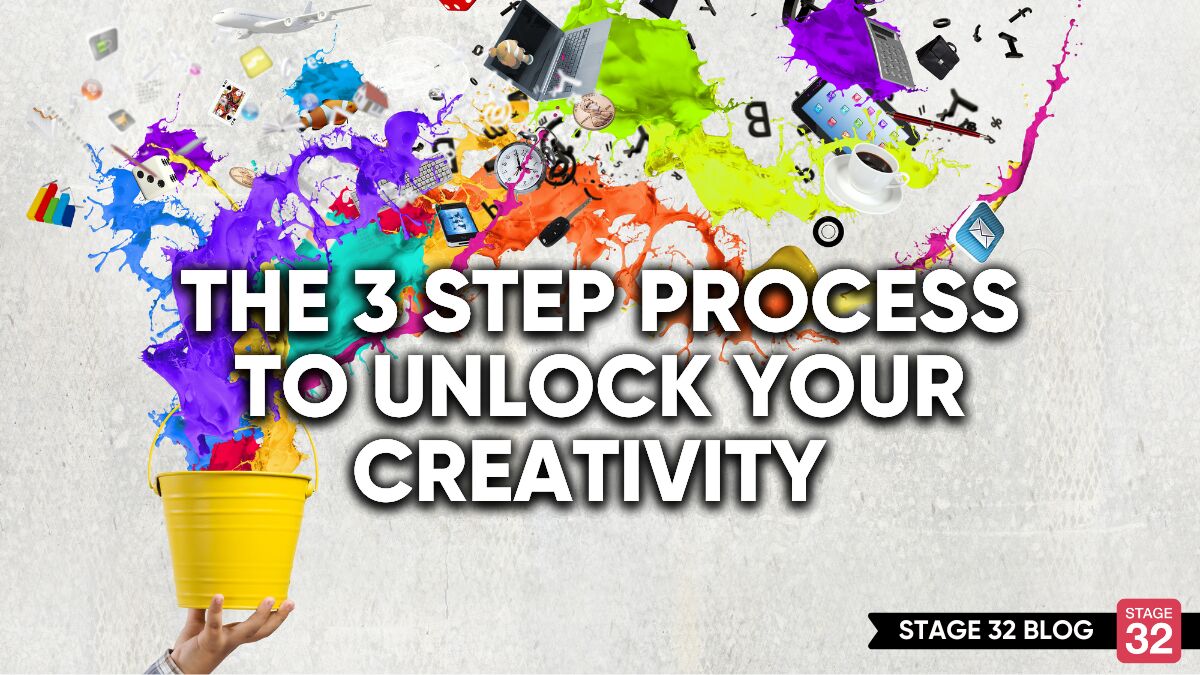The 3 Step Process To Unlock Your Creativity
One of the biggest challenges filmmakers and screenwriters face is to keep their creative energy fresh and high while working on projects that ask years of endurance and at times don't feel creative.
What often drove us toward filmmaking - the excitement of creating stories - can quickly become the thing we connect with the less as we work toward building our careers: handling deadlines, finding an agent, raising money, applying to festivals, answering casting calls, and the 100 other tasks our industry demands of us.
So, with only 24 hours in a day, how do you keep your creativity flowing? How do you make sure your direct access to your most precious asset (your creative voice) not only stays healthy but even grows stronger?
Today I'm going to share with you a 3 steps process to unlock your creativity and get in touch with it, even if you only have a few minutes in your day.

"Every athlete, every musician practices every day. Why should it be different for artists?" Christopher Niemman
But first, I need you to picture your Creativity as a muscle in your body. Just like any other muscle in your body, if you don't use it, it atrophies.
If you use it intermittently when you need it, it will function. Unless you let it aside for too long or you push it too hard without warm-up, then it'll get hurt. Hurting your creativity is not a cute metaphor. In real life, it can translate into something minor such as a short creative block or much more serious, such as a feeling of burnout.
If you activate it, stretch it, and nurture it regularly, it grows. It becomes a weapon you know you can rely on. It becomes something people notice and associate you with.
At Activate Creativity we treat creativity as a muscle. A muscle that we all have in us and can stay healthy and grow stronger if we exercise it regularly and mindfully.
In other words, whether you need to shake things up, or stretch your creativity, or get out of a creative block, a well-designed sequence of creative exercises can help you to do so.
"Even if you only have fifteen minutes a day in a stairwell alone with your creativity, take it. Go hide in that stairwell and make out with your art!" Elizabeth Gilbert
We all wish we had more time to create, to make trials and errors, to have fun and play. But we also all have bills to pay. Usually, the time we have to dedicate to these seemingly unproductive activities shrinks severely as our number of responsibilities rises.
The good news is that you don't need to spend a lot of time on your creativity.
The even better news is that putting your creativity under gentle pressure is a powerful way to unlock it.
Which takes us to our first step to unlock your creativity:
STEP 1: SET A TIMER
Creativity needs a canvas and limitations to thrive. You can't think outside of the box if there's no box in the first place.
Giving creativity a time constraint is an effective way to help unlock it.
So, if you find yourself creatively blocked, decide on the amount of time you're going to give yourself to shake things up.
Our recommendation: 10 minutes.
10 minutes is short enough that it forces you to go for it and long enough so you'll still have time to clear out the first layer of creative dust and dig sideways.
"I invented nothing new. I simply assembled into a car the discoveries of other men behind whom were centuries of work." Henry Ford
STEP 2: HUNT THE THRILL
The paradox with creativity is that it needs a canvas to express itself and at the same time, it doesn't like to be told what to do.
Creativity is about changing the rules, breaking the rules, or pushing the rules.
So how do you find the right balance between these two contradictions? You chase the 'thrill-feeling'.
Instead of going through the motions thinking: 'Okay I'm putting my timer to 10 minutes, I'm complying and doing what I'm told to do, and let's see if my creativity gets unlocked', the mindset you want to have to unlock your creativity is one of a treasure hunter.
Just like a treasure hunter, you know you're looking for something shiny, but you can't predict what you're going to come back with exactly.
Just like a treasure hunter, all your senses should be ON.
Just like a treasure hunter, you should be committed to following the trail that makes your heart beat a little faster, that makes you stop and wonder, and that gives you a feeling of thrill.
Now that you've got the time constraint (Step 1) and the right mindset (Step 2), let's do an exercise.
There are hundreds of creative exercises that can be done under 10 minutes and that will bring particular benefits. Today you are going to do an exercise we call Astronauting.
Read the full description below and only then do it. Don't judge if it's going to work before trying it. Resistance is a natural form of protection, that's why you need to switch mindset, favor your hunter mindset, and actually do it.
"As our island of knowledge grows, so does the shore of our ignorance." John Wheeler
ASTRONAUTING
For this article's purpose let's assume that you all have access to a pen and a paper.
Grab them.
Then pick a word. Don't overthink it. It can be the name of a character from the story you're working on, a concept linked to something challenging/interesting to you (Money, Career, Patience, Fear?), or just a word that crosses your mind.
- Write that word in the middle of an empty page and circle it.
- Set your timer to 7 minutes.
- For the next 7 minutes, free associate around that world. So, if the word you put is Money, maybe the first thing that comes to your mind is 'could use a million'. Write down could use a million, circle it, and like it to money. And 'could use a million' might remind you of 'Queen of Versailles', or your stingy uncle or... only you know.
Here is an example of what Astronauting could look like:

- When the timer rings, stop.
- Set your timer to 3 minutes.
- Now chase the thrill: look back at everything you wrote and annotate what takes your attention. A conclusion that surprises you, a connection you didn't expect, a concept you'd like to dig, a sentence you found moving, etc. 3 minutes is enough to poke at your creativity.
- When the timer ring stops. You can always go back to your Astronauting and chase more thrills. But right now, in just 10 minutes you should have created data that is showing you new paths to explore.
And then comes Step 3.
"We don't see things as they are. We see things as we are." Anais Nin
STEP 3: SHARE
Everything shouldn't be shared and everything shouldn't be shared with everybody. But if your goal is to unlock your creativity, sharing what you've come up with, with at least one person is necessary to complete the process.
Here is why: sharing gives life to your work, it opens up possibilities for feedback, explanations, and conversations.
And all those things have the potential to become a new idea or your next idea.
Sharing is anything but a passive step. It lets you reach another layer in your journey to unlock your creativity.
The 'other' here, plays the role of a mirror. Your job is still to have all your senses opened and to chase the thrill. From the moment you start the timer until the moment you share and receive feedback, you remain the person in control. You get to filter and decide if what you hear is interesting or not, frustrating or not, disappointing or not.
To maximise the benefits of this third step you need to be mindful about whom you share your raw creativity with. If you decide to do it with a friend or a loved one, give them context and tell them what type of feedback you'd like to get.
Maybe you just want to hear their first reaction, maybe you want to bounce back ideas, maybe you just want them to praise you because that's what they do and that's what you need.
Again, you're in charge. Only you know your creative muscle. We give you tools to exercise it, but you're the one who has direct and full access to it.
And that's the 3 steps process to unlock your creativity:
- give yourself a time constraint
- pick the right mindset and chase the thrill
- share with at least one person
If you'd like to share your Astronauting with us, feel free to do it below!
Let's hear your thoughts in the comments below!
Got an idea for a post? Or have you collaborated with Stage 32 members to create a project? We'd love to hear about it. Email Ashley at blog@stage32.com and let's get your post published!
Please help support your fellow Stage 32ers by sharing this on social. Check out the social media buttons at the top to share on Instagram @stage32 Twitter @stage32 Facebook @stage32 and LinkedIn @stage-32
| Coffee & Content: When They Double Down, You Triple Down! |
| The Economics of Short Films |
Search Stage 32 Blog
There are now 4037 blog posts for you to enjoy. Search them all by tags below.
Acting, Advice, Cinematography, Coffee & Content, Composing, Contests, Distribution, Featured, Filmmaking, Financing, Inspirational, Networking, Producing, Screenwriting, Success Stories, Tips, Trending,Relevant Tags
Recommended Articles

Insider Intel: 2026 Predictions
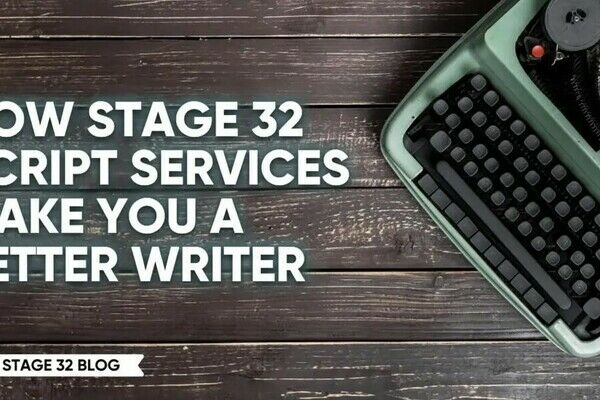
How Stage 32 Script Services Make You A Better Writer
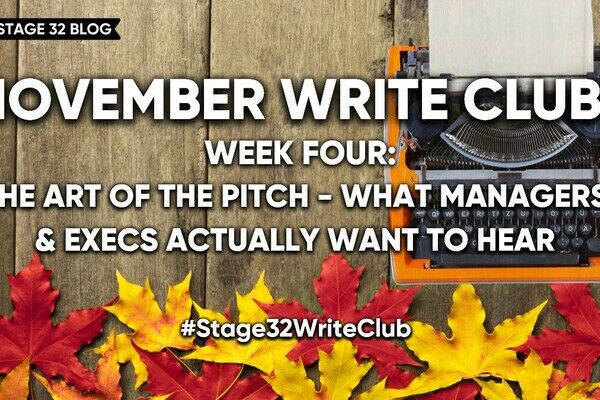
November Write Club Week 4: The Art of the Pitch- What Managers & Execs Actually Want to Hear

Stage 32 Certification Featured In IndieWire!
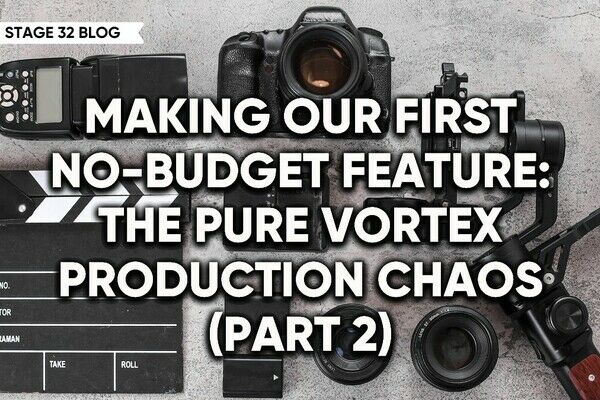
Making Our First No-Budget Feature: The Pure Vortex Production Chaos (Part 2)

Don't Let the Momentum of November Write Club Die: How to Stay Active Into 2026 & Beyond!
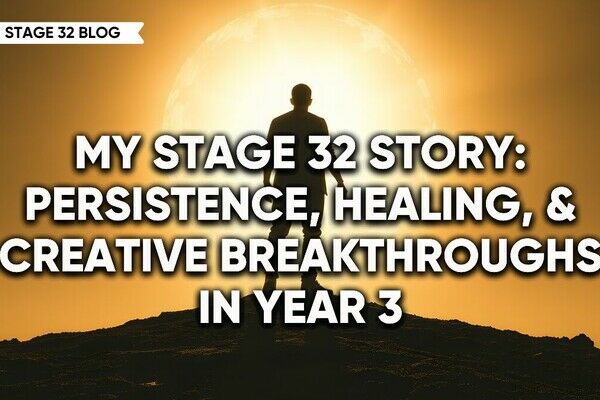
My Stage 32 Story: Persistence, Healing, & Creative Breakthroughs in Year 3

Insider Intel: Packaging your Project- The Chicken or the Egg Dilemma

Stage 32 + Mark Creative Management Partner For Exclusive Opportunity for Writers to Land Representation!



